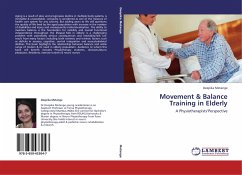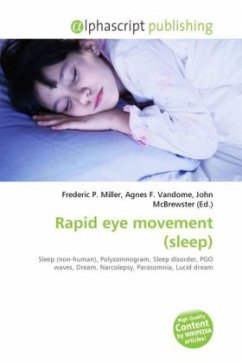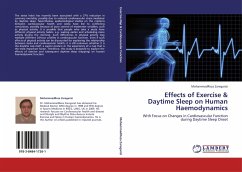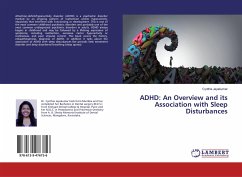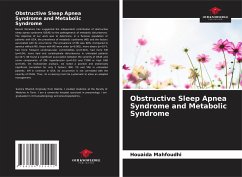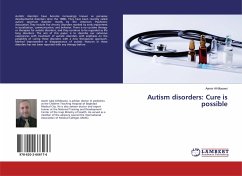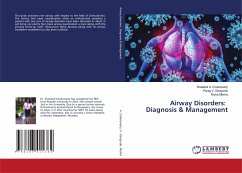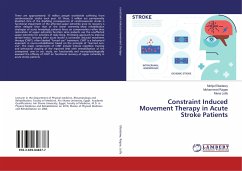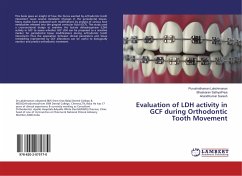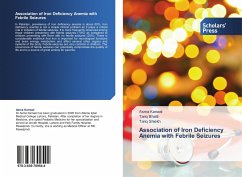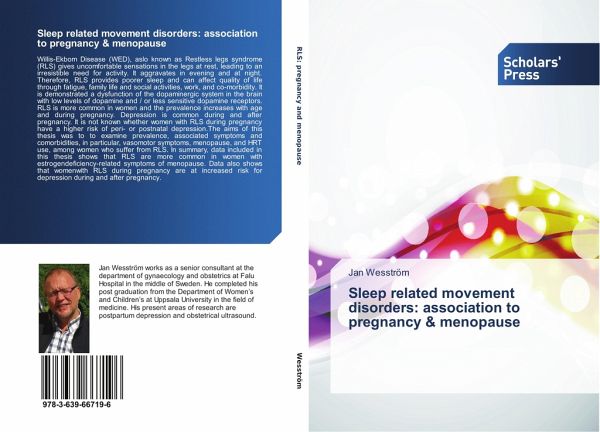
Sleep related movement disorders: association to pregnancy & menopause
Versandkostenfrei!
Versandfertig in 6-10 Tagen
36,99 €
inkl. MwSt.

PAYBACK Punkte
18 °P sammeln!
Willis-Ekbom Disease (WED), aslo known as Restless legs syndrome (RLS) gives uncomfortable sensations in the legs at rest, leading to an irresistible need for activity. It aggravates in evening and at night. Therefore, RLS provides poorer sleep and can affect quality of life through fatigue, family life and social activities, work, and co-morbidity. It is demonstrated a dysfunction of the dopaminergic system in the brain with low levels of dopamine and / or less sensitive dopamine receptors. RLS is more common in women and the prevalence increases with age and during pregnancy. Depression is c...
Willis-Ekbom Disease (WED), aslo known as Restless legs syndrome (RLS) gives uncomfortable sensations in the legs at rest, leading to an irresistible need for activity. It aggravates in evening and at night. Therefore, RLS provides poorer sleep and can affect quality of life through fatigue, family life and social activities, work, and co-morbidity. It is demonstrated a dysfunction of the dopaminergic system in the brain with low levels of dopamine and / or less sensitive dopamine receptors. RLS is more common in women and the prevalence increases with age and during pregnancy. Depression is common during and after pregnancy. It is not known whether women with RLS during pregnancy have a higher risk of peri- or postnatal depression.The aims of this thesis was to to examine prevalence, associated symptoms and comorbidities, in particular, vasomotor symptoms, menopause, and HRT use, among women who suffer from RLS. In summary, data included in this thesis shows that RLS are more common in women with estrogendeficiency-related symptoms of menopause. Data also shows that womenwith RLS during pregnancy are at increased risk for depression during and after pregnancy.



